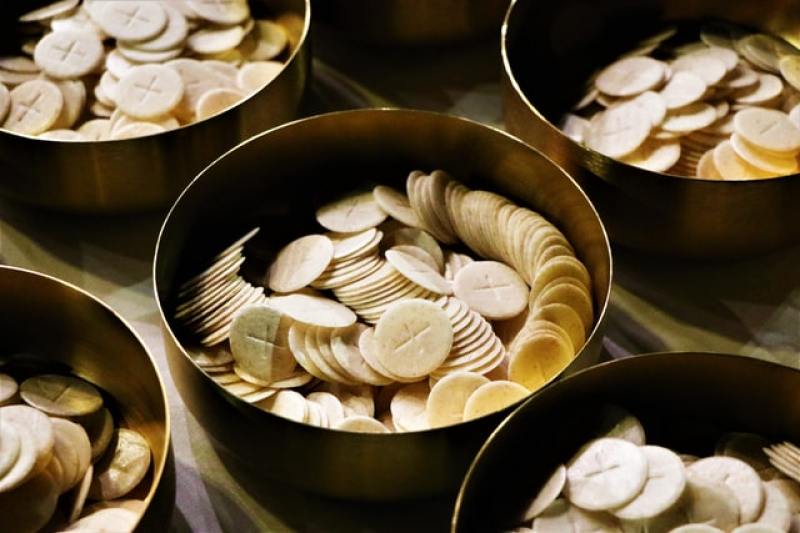
Catholic leaders reportedly continue debating over the issue of denying pro-abortion politicians Holy Communion.
The Christian Post (CP) reported that the Vatican through its Congregation For The Doctrine Of Faith Prefect Cardinal Luis Ladaria has sent a letter to the United States Conference of Catholic Bishops President Archbishop Jose Gomez on the issue of denying communion to pro-abortion Catholic politicians allegedly "warning" them for doing so based on a report by the America Magazine on May 11.
Prior to sending the letter, CP said that Catholic bishops hold varying opinions on the matter citing California Archbishop Salvatore Cordileone releasing a pastoral letter on it early this month while San Diego Bishop Robert McElroy stating against it in February for being a "very destructive" idea.
"If you find that you are unwilling or unable to abandon your advocacy for abortion, you should not come forward to receive Holy Communion. To publicly affirm the Catholic faith while at the same time publicly rejecting one of its most fundamental teachings is simply dishonest," Cordileone said in his pastoral letter.
McElroy, in a report of CRUX Now, said, "I do not see how depriving the President of other political leaders of Eucharist based on their public policy stance can be interpreted in our society as anything other than the weaponization of Eucharist."
As reported previously, Cordileone released the pastoral letter entitled "Before I Formed You In The Womb I Knew You" that centers on the "Human Dignity of the Unborn, Holy Communion, and Catholics In Public Life."
Cordileone laid the grounds for the importance of one's worthiness to receive the communion and how one's "Cooperation In Moral Evil," such as abortion, hampers one's worthiness to receive it. He stressed that Catholics who are public figures and who publicly reject Catholic teaching such as abortion is not a matter of "human weakness or a moral lapse" but is really a matter that needs to be focused on by the "Church's pastors in caring for the salvation of souls."
As per Vatican News, Ladaria sent the letter dated May 7 to the USCCB in "response to a letter from Archbishop Gomez in March, informing the Congregation for the Doctrine of the Faith that the U.S. Bishops were preparing to draft a document following some controversy related to U.S. President Joe Biden and some of the policies of his administration."
Ladaria "expressed gratitude" on the intention of the USCCB to draft the said document, which is subject to the review and votation of American Bishops for its approval.
Ladaria also pointed out to the USCCB two documents to help them decide on the matter. First, he cited a 2004 letter of Pope Emeritus Benedict XVI, who was then the Prefect of the Congregation for the Doctrine of the Faith, to Cardinal Theodore McCarrick regarding the same issue. Next, he cited a 2002 CDF Authoritative Doctrinal Note that delved "on some questions regarding the participation of Catholics in political life."
The Cardinal said both documents would help the U.S. Bishops on "the teaching of the Magisterium on the theological foundation for any initiative regarding the question of the worthy reception of Holy Communion."
Ladaria also said in the letter, as per Vatican News, that the matter was brought up by the American Bishops during their Ad Limina visits to the Pope, during which the CDF has recommended to them on the need to dialogue on two levels: among the bishops and between the bishop and the Catholic pro-choice politicians within their jurisdictions.
He stressed that having a national policy on the matter must be weighed properly for it may become "a source of discord rather than unity within the episcopate and the larger Church in the United States."
"Dialogue among the bishops be undertaken to preserve the unity of the episcopal conference in the face of the disagreements over this controversial topic. The formulation of a national policy was suggested during the ad limina visits only if this would help the bishops to maintain unity," Ladaria said.






















